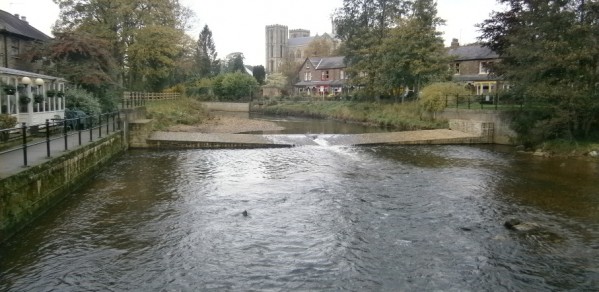
Climate change is predicted to increase the frequency and severity of flooding in coming years. For more effective flood alleviation, a recently published study recommends schemes that consider the social impact of floods as well as the economic damages.
Climate change increases intense rainfall and raises sea levels, both of which increase the risk of flooding. Between 1998 and 2009, Europe experienced over 200 major floods, causing 1126 deaths, the displacement of around half a million people and over €50 billion in economic losses. In the years to come, the damage is likely to increase. According to some estimates, flood damages across Europe could increase by 200% by the end of the century.
Flood alleviation schemes are therefore vital. Existing schemes are driven by technical and economic considerations, often based on cost-benefit analysis, which weighs up the costs of flood alleviation against its anticipated monetary gains. While useful for providing an easily accessible analysis of a scheme, this approach does not take into account less quantifiable factors, like social values.
A paper written by PhD student Sarah Fitton with her supervisors Dr Alice Moncaster and Professor Peter Guthrie investigates this issue. The paper demonstrates that there are several different types of social value; economic forms which include the social benefits to an area and the positive impact these may have on the local economy, and less tangible types including quality of life and community safety. Social values indicate what is important to a local community and can aid the development of effective flood alleviation schemes that satisfy all stakeholders.
To support a more socially considerate approach to flood alleviation, this study examined the perspectives of different stakeholders, including local community members and members of a flood alleviation scheme’s design and construction team.
The paper 'Investigating the Social Value of the Ripon Rivers Flood Alleviation Scheme' published in the Journal of Flood Risk Management, focused on a flood alleviation scheme in a city in the north of England vulnerable to flooding. Semi-structured interviews were held with 26 people between October and December 2013. While the majority were members of the local community, some were employees of the Environment Agency (the body responsible for flood management) and members of the design team for the flood alleviation scheme.
The analysis showed that the local community members were divided into two main groups: those who had been victims of flooding, and those who had not personally experienced flooding but were affected by the scheme. The results revealed contrasting perceptions. For example, most local residents — especially those who had been directly affected by flooding — thought of social value in terms of community-wide and non-financial values, such as peace of mind and social inclusion. By contrast, community members who had not been victims of flooding were more likely to consider the economic aspects of the scheme. Most industry participants primarily defined social value in economic terms, such as a positive effect on employment and tourism.
Although there were varying perceptions of social value, the study clearly shows its importance within flood alleviation. The existing processes dictating how flood alleviation schemes are developed in the UK, and several other European countries, do not consider social value, an approach that risks neglecting the needs of local communities. The authors recommend a change in approach, in order to understand the different perceptions of social value during the design and implementation of flood alleviation schemes. Looking ahead, the authors further suggest that their method could be applied across countries and continents in order to develop an international understanding of the social value of flood alleviation.
The paper reports part of a larger study carried out by Sarah for her PhD which included two further flood alleviation schemes in the UK. Sarah was funded through an EPSRC i-Case award, supported by Arup, and supervised by Professor Peter Guthrie and Dr Alice Moncaster at the Centre for Sustainable Development at Cambridge. Her interdisciplinary research used methods and theories from the social sciences to understand and reinterpret a technical civil engineering issue, with the support and collaboration of the engineering team at Arup and the Environment Agency. She successfully submitted within the 3.5 years of the award, had her viva on 16th June, submitted her minor corrections on 30th June to the approval of the examiners and gave birth to her first baby just ten days later. We would like to congratulate Sarah on her exceptional achievements all round, and wish her many more successes in the future.

